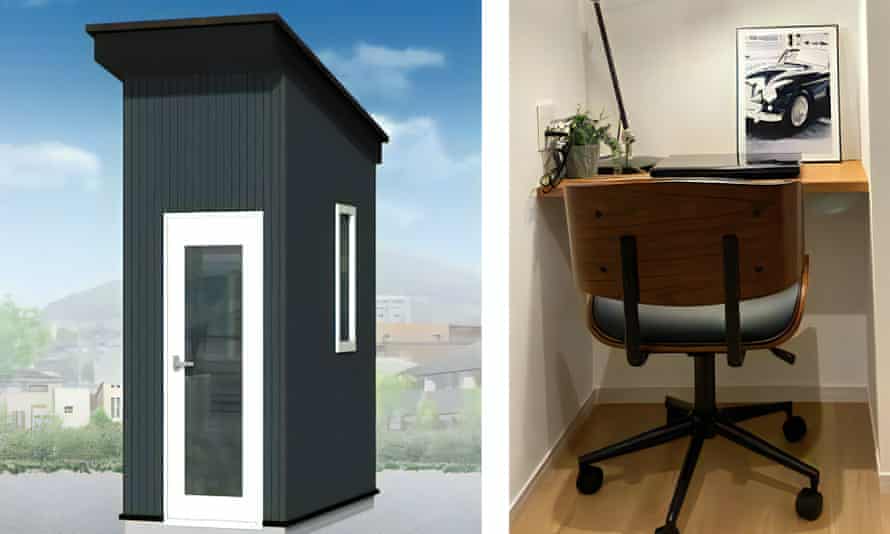Japanese design is renowned for its minimalism, and for keeping things simple and uncluttered.
So it’s no surprise that a leading housebuilder is trying to tackle the lack of space for pandemic-era working from home by marketing a tiny home-office building that can be constructed adjacent to houses in just two days, fine weather permitting.
The so-called Hanare Zen is a 91cm-wide and 1.8 metre-long building equipped with power sockets, a counter-type desk and very little else.
KI Star Real Estate, a popular housebuilder, began taking orders for the Hanare Zen on 6 September, hoping to find a market among those struggling to work in cramped homes.
Hanare means separate or detached in Japanese, while Zenzen is written in both the Chinese character for Zen Buddhism and the alphabet.
“We had already created the Hanare building as a kind of storage space, and with the situation in the pandemic, the idea came about to develop the Hanare Zen as a work space,” said Chisa Uchiyama, a spokesperson for KI Star Real Estate. “The use of ‘Zen’ in the name represents the minimalist concept of stripping down the size and features to only what is necessary.
“It is designed for people who have difficulty in finding a comfortable space to work in their home and don’t want to get in the way of their family,” added Uchiyama.

The Hanare Zen costs 547,800 yen (£3,600) and is available in Tokyo and the surrounding prefectures.
For some of the 70% of Tokyo’s population that live in apartments, and would be unable to use a construction like the Hanare Zen, working in their cars has become one way to find some peace and quiet to toil in.
Demand is up for a range of accessories to support in-vehicle working, including stands for computers that fit onto steering wheels, folding desks, mini-fans, portable batteries and screens for windows to block outside distractions.
In Kawasaki, south of Tokyo, the Tokyu Railway Company has renovated old train carriages and converted them into remote working spaces that can be rented for 200 yen (£1.30) an hour at its Train & Bus Museum.
The company has also repurposed some of its ticket kiosks at stations into shared office spaces, which it began offering for rent in July. Falling passenger numbers and sales of commuter passes due to the pandemic had reduced the demand for its ticketing services.
Even after the pandemic is brought under control, 90% of Japan’s major corporations that have implemented teleworking intend to continue doing so, according to a survey by the Mainichi Shimbun newspaper earlier this year.
Though Japan hasn’t imposed full lockdowns, the government has asked people who can to work from home as much as possible under the state of emergencies, to avoid crowded public transport commutes in the cities as well as reduce the chance of infections in workplaces.
The current state of emergency, the fourth since the start of the pandemic, has been extended in Tokyo, Osaka and 17 other prefectures until the end of the month.
In addition to cramped living quarters, a lack of digital infrastructure at many companies and the need to go into offices to stamp documents and receipts with official seals has made full teleworking difficult for many employees in the public and private sectors.
On 1 September, Japan launched a new Digital Agency to address such issues and accelerate the digitisation of the economy and administrative processes at local authorities, the central government and businesses.
from WordPress https://ift.tt/2VFRMUy
via IFTTT

No hay comentarios:
Publicar un comentario